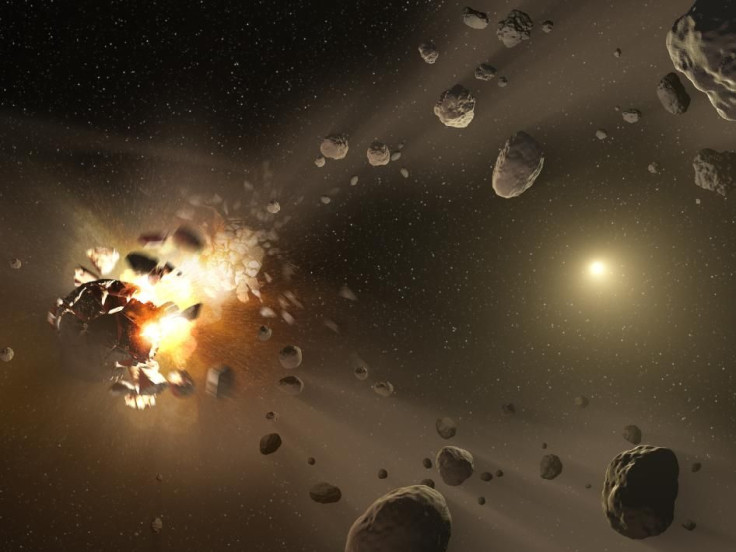Mathematician Claims Another Dinosaur-Ending Asteroid Will Hit Earth Again

A massive asteroid hit the Earth around 66 million years ago, and it resulted in magnitude 11 earthquakes as well as a sudden climate shift that eventually caused the end of the dinosaur era.
In Q&A website Quora, Mathematician Robert Walker answered the question of whether an asteroid will hit the Earth again. He said an asteroid as massive as the Chicxulub asteroid will hit the Earth again because they do so every 100 million years on average.
Since it has been about 66 million years since the dinosaur-killing asteroid hit Earth, this could mean that another one could strike again in about 44 million years.
According to NASA, space objects large enough to threaten Earth’s civilization come once every few million years, while potentially hazardous meteoroids the size of football fields hit the Earth about once every 2,000 years.
So far, 90 percent of near-Earth objects over a kilometer in size are already accounted for by NASA, which means that 10 percent of them are still unknown. While the chances of a major asteroid hitting Earth and causing significant regional damage in a year is rather small at 1 in 300,000, it is still not an impossibility.
This is why NASA and the European Space Agency (ESA) are already teaming up for Asteroid Impact Deflection Assessment (AIDA) mission in hopes of finding a way to deflect the potentially hazardous asteroid from hitting the Earth.
For the project, NASA will deliberately crash a spacecraft onto asteroid Dydimos to hopefully change its orbit speed, albeit by a little, then ESA’s Hera spacecraft will come three years later to assess the changes to the asteroid more closely.
Meanwhile, NASA’s OSIRIS-Rex spacecraft is already on asteroid Bennu, a 500-meter space rock with the potential to wipe out a country on Earth in 120 years. With this mission, scientists hope to gather vital information on how to avert potentially hazardous asteroids from hitting Earth.
That said, it is worth noting that there is only a small chance of asteroid Bennu hitting the Earth. In fact, of the planets in the solar system, Bennu is most likely to hit Venus.
© Copyright IBTimes 2025. All rights reserved.






















